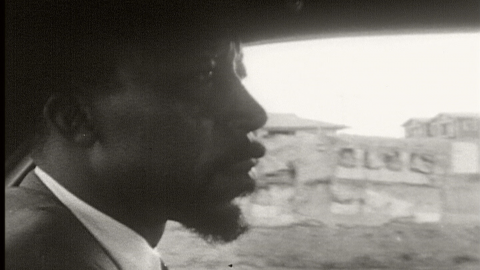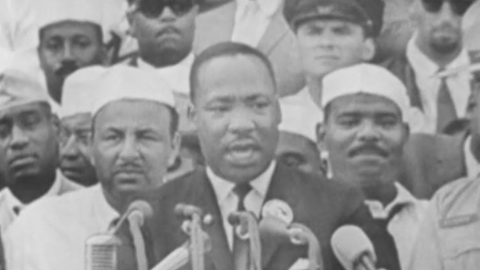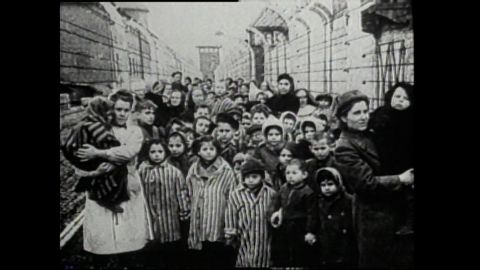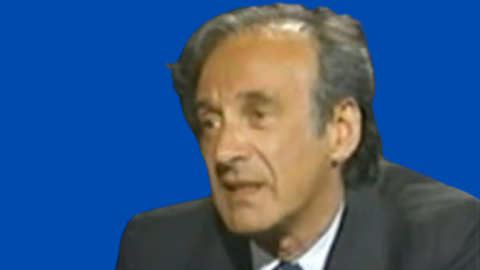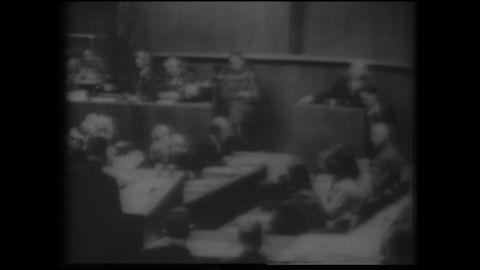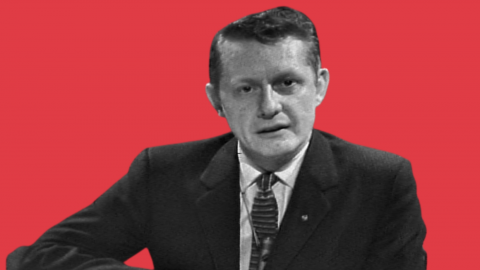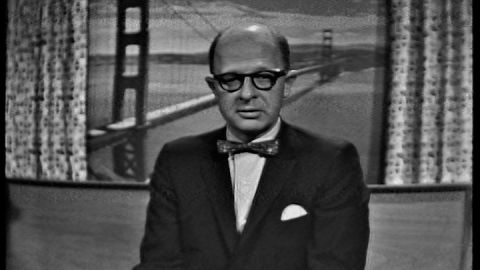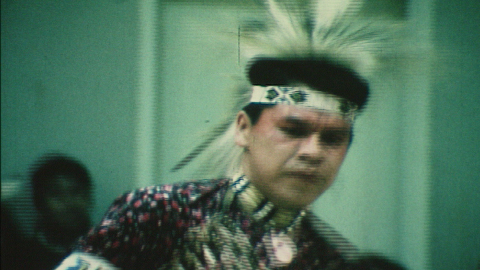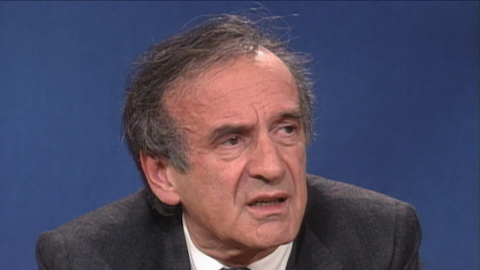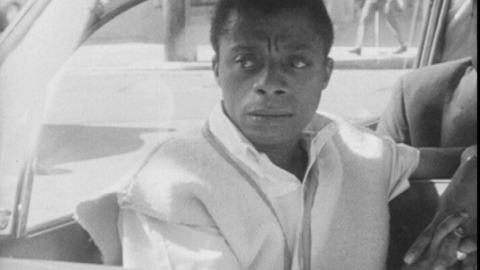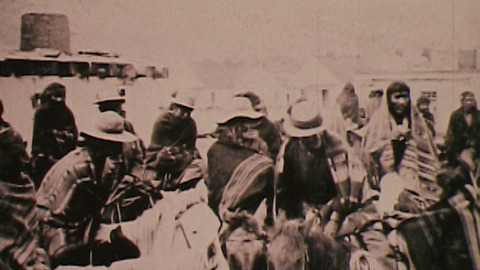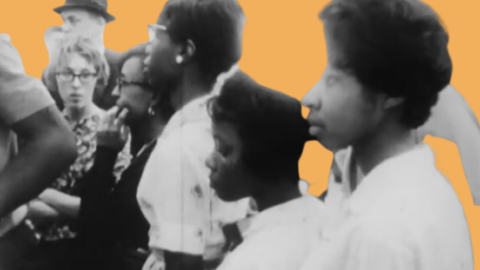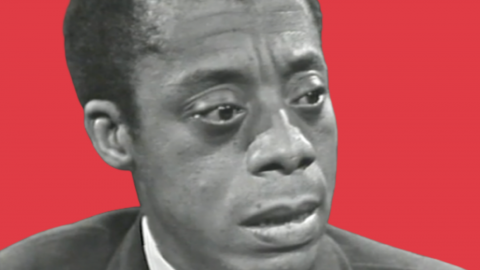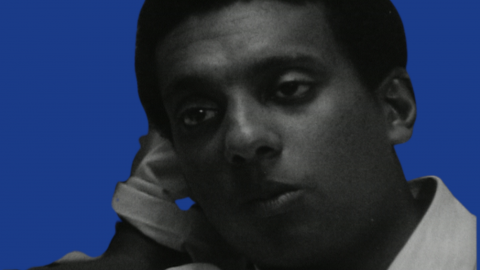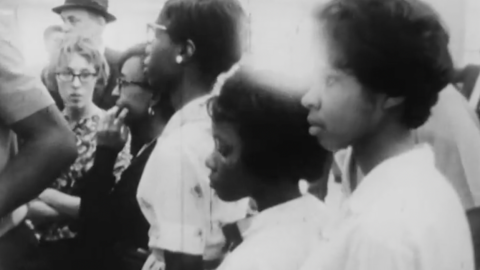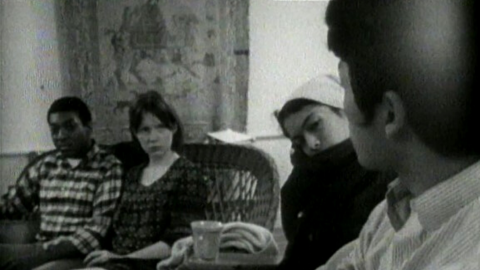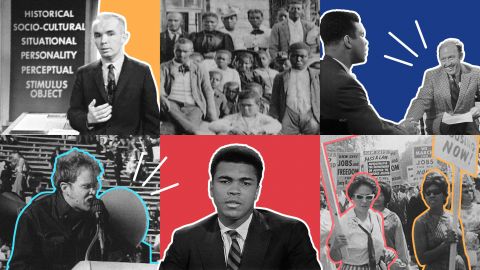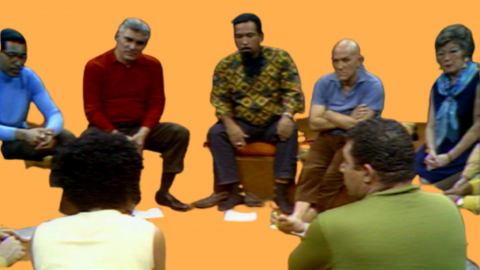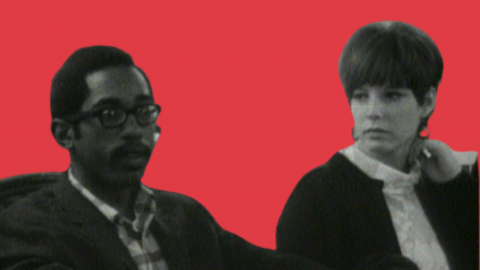Editorial: What History Can Teach Us About Hate Crime
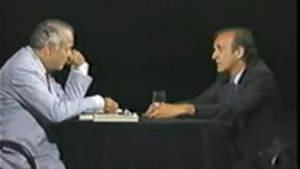
From Elie Wiesel on The Nature of Human Nature
By Nida Khan
This content contains scenes that may be too sensitive for some viewers.
Nineteen bodies – men, women and children — were exhumed last summer in Tulsa, Oklahoma during a search for unmarked graves dating from the Tulsa Race Massacre of 1921.
One hundred years ago, the thriving Black neighborhood of Greenwood, also referred to as Black Wall Street, was attacked by a violent white mob. In less than 24 hours, hundreds of neighborhood residents were murdered and countless more were injured, businesses were burned to the ground, thousands of homes were torched, newspapers and schools were attacked, and a once vibrant community was left in ruins in one of the worst incidents of racial violence in American history.
The tragedy of Tulsa however did not occur in a vacuum. It was a continuation of the subjugation and racial hatred that was a legacy of the slave trade.
History shows that dehumanizing entire groups of people inevitably leads to atrocities and massacres. It was as true in Tulsa a century ago as it is today.
With hate crimes and antisemitism on the rise, marginalized groups under attack, draconian laws in place restricting the right to vote, and the rescinding of human rights by the Supreme Court, this moment demands a close examination of how our nation reached this point, and where we go from here.
“What allowed the situation of absolute cruelty to develop was the indifference of so many people,” said Nobel laureate Elie Wiesel in The Nature of Human Nature. “They let it happen. Few maniacs murdered but all around so many knew and let it happen.”
Watch: “After the War” from Elie Wiesel on the Nature of Human Nature
As Elie Wiesel explains in this interview, knowledge of an injustice taking place does not necessarily mean the same thing as ethical knowledge.
It is passive disregard — looking the other way — that allows inhumane acts to develop and take hold. The process begins with a gradual marginalization and demonization of a group of people by political leaders. Continually condemning them as ‘the other’ leads to abrogation of their rights and liberties; confiscation of their property and other acts of discrimination; and eventually to atrocities like forced labor, torture, and massacre.
The Nuremberg Trials contains actual footage of the historic courtroom proceedings that held Nazi war criminals accountable for the horrors of the Holocaust.
Watch: “Military tribunal gets underway” from The Nuremberg Trials
Supreme Court Justice Robert Jackson, the chief prosecutor at the trials, led indictments ranging from conspiracy to crimes against humanity – crimes against world peace, as he explained in his opening remarks. These documentaries show how the Nazis scapegoated and marginalized Jews through propaganda; how they seized power by fearmongering; and how their campaign of hate and mass murder caused suffering and catastrophe for all mankind.
The concerted and constant vilification of the Jewish community and other minority groups created a pretext for authoritarianism and elimination of freedoms, leading to the suffering and death of millions.
According to the FBI’s annual hate crimes report, 2019 was the third consecutive year in which more than 7,000 hate crimes were reported in the U.S. – the highest level in more than a decade. These attacks showed intensified levels of violence, resulting in more deaths than in any previous year. Because many attacks go unreported and not all police departments track such statistics, the real numbers are likely even higher.
The battle for voting rights and equal representation is far from over. In defiance of the sacrifice and dedication of so many to secure the Voting Rights Act of 1965, measures are again in place to disenfranchise poor, Black, and minority voters.
In 2013, the Supreme Court effectively gutted the Voting Rights Act, putting an end to the requirement for states and jurisdictions – even those with a history of discrimination — to receive preclearance from the federal government before making any changes to voting laws. This opened the floodgates to new restrictions in many states.
In the current year alone, 18 states have enacted 30 laws which make it more difficult for people to vote. More than 400 bills designed to restrict voting access have been introduced in 49 states. As the U.S. population becomes more diversified, there is a tremendous push-and-pull between those who seek to expand equality and representation, and those who seek to limit these freedoms.
As the Rev. Dr. Martin Luther King Jr. once aptly stated: “In the end, we will remember not the words of our enemies, but the silence of our friends.”
Exploring Hate: Antisemitism, Racism and Extremism is a deep dive into history with warning signs for our present, as well as a roadmap for hope and continued progress. The first set of films shows the many ways by which varying populations are demonized — and the effect of this abuse on those already marginalized, and on all of society. It is a reminder that in the face of hatred and injustice, it is our duty to speak up.
The views and opinions expressed are those of the author.

